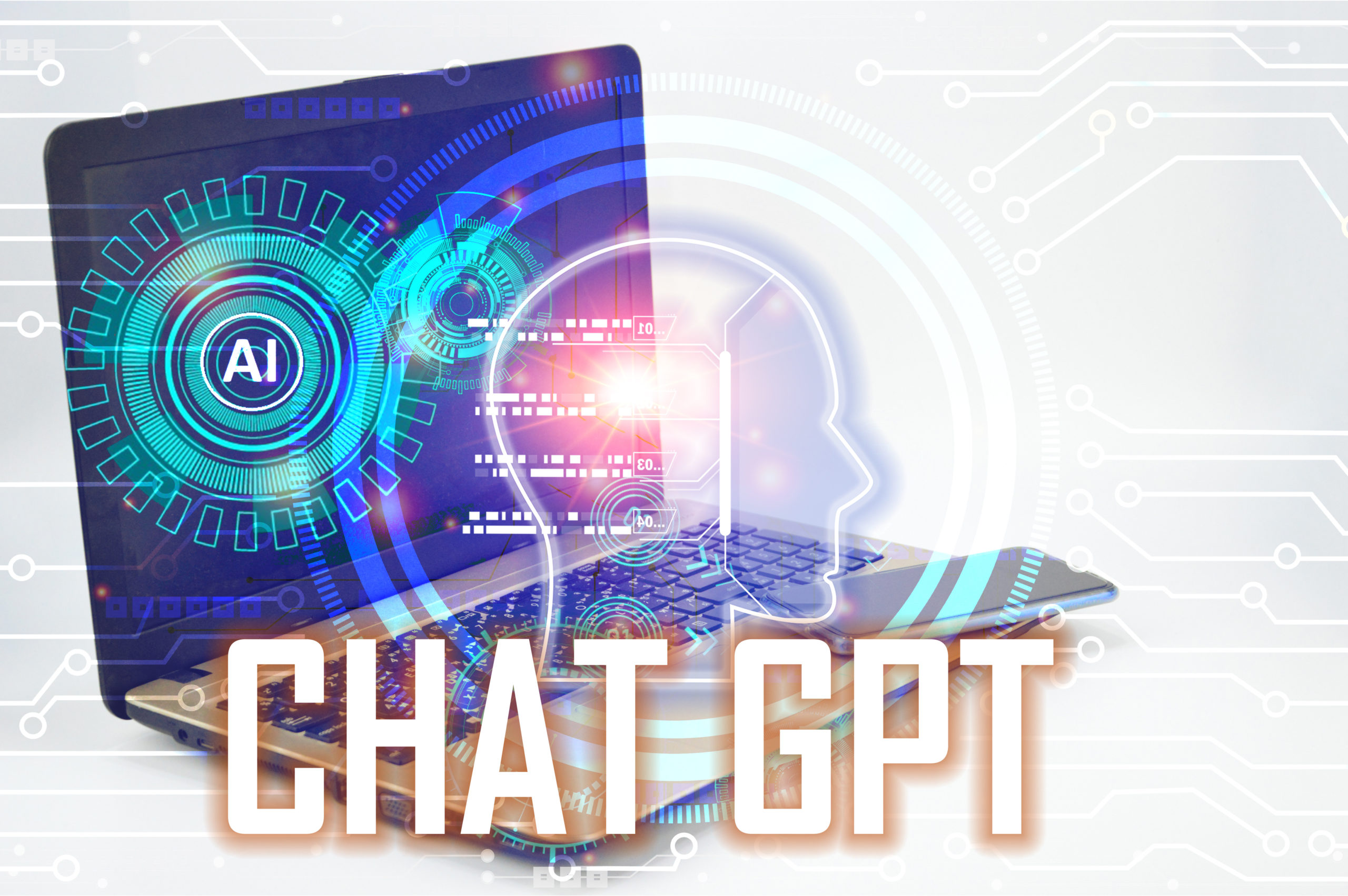ChatGPT for local governments: Balancing this revolutionary tool, with its inherent risks
Picture this: as a local government official in a small city, you’re continuously seeking ways to optimize administrative processes, engage with your community more effectively, and make the most of limited resources.
What if there was a groundbreaking tool that could help you achieve these goals?
Introducing ChatGPT, an AI-driven technology that’s transforming the landscape of city and county offices.
In this article, we’ll demystify ChatGPT, focusing on its potential benefits and the challenges it presents, including cybersecurity concerns. Our goal is to provide you with a balanced and practical perspective on this AI technology.
ChatGPT offers an array of applications that can help streamline tasks and enhance citizen engagement, opening a world of possibilities for local governments.
However, it’s essential to weigh the opportunities against the challenges to make informed decisions about adopting this cutting-edge tool in your administration.
Join us as we delve into the unique aspects of ChatGPT, including real-world examples and underexplored applications. We’ll discuss the advantages, address potential hurdles, and offer valuable insights to help your city or county office harness the power of AI while mitigating any concerns that may arise.
Together, we’ll explore the fascinating world of ChatGPT and its role in shaping the future of local government operations.
Overview of ChatGPT For Local Governments
In today’s digital era, the impact of artificial intelligence (AI) on various industries is undeniable, and the public sector is no exception.
To better understand the potential of AI for city and county governments, it’s essential to examine the broader context and the role of ChatGPT in transforming public administration.
AI and ChatGPT in City and County Governments
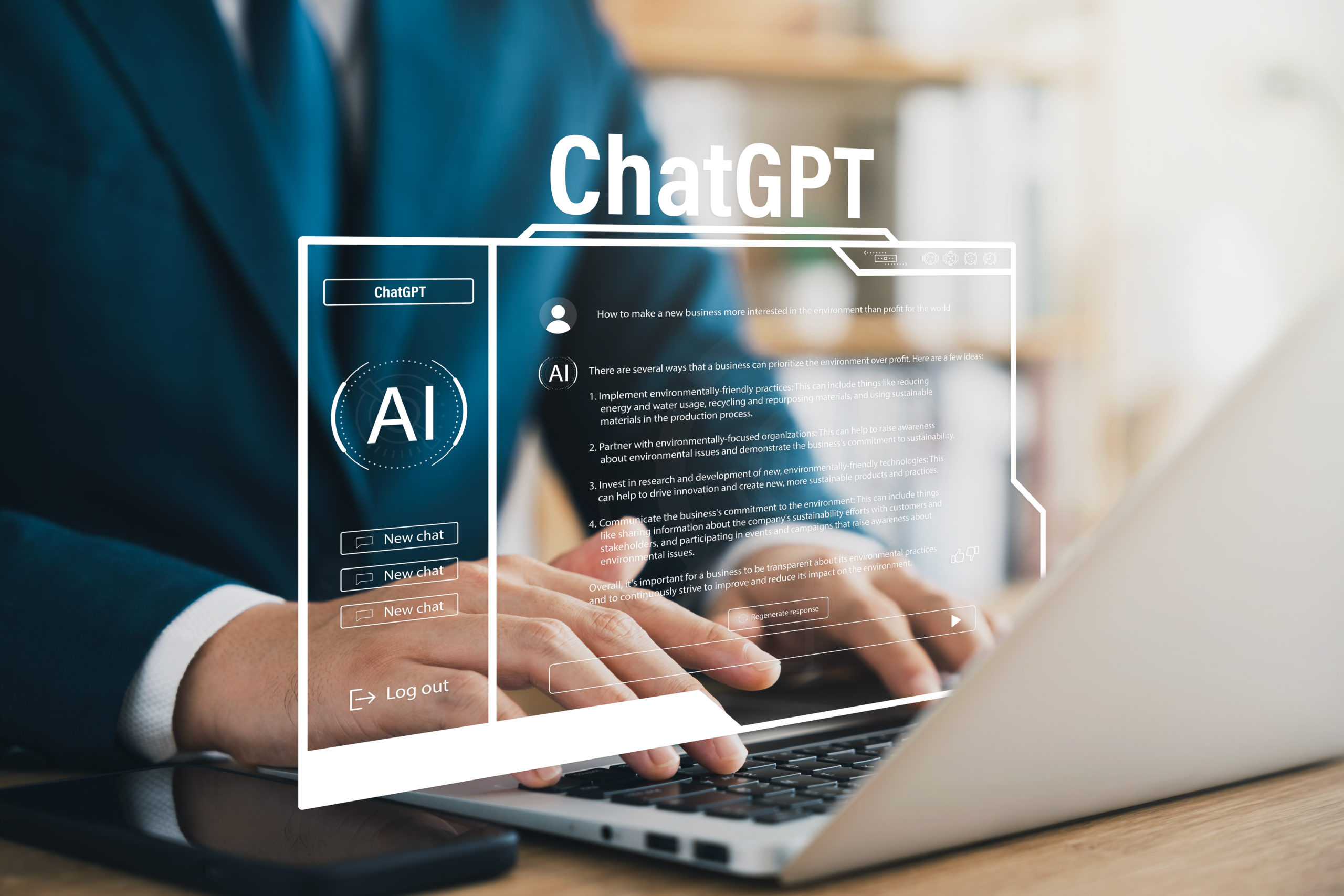 Artificial intelligence has been rapidly advancing, offering a myriad of solutions that can help local governments optimize their operations, enhance communication, and improve decision-making.
Artificial intelligence has been rapidly advancing, offering a myriad of solutions that can help local governments optimize their operations, enhance communication, and improve decision-making.
ChatGPT, a language model developed by OpenAI, is one such solution. It harnesses the power of AI to understand and generate human-like text, enabling it to assist in various tasks, such as drafting documents, automating customer service, and providing valuable insights.
Significance of AI in Public Administration
AI has the potential to revolutionize public administration, primarily by automating repetitive tasks, streamlining workflows, and increasing efficiency. This allows city and county governments to allocate their resources more effectively and focus on high-priority initiatives.
Furthermore, AI-driven solutions can enhance decision-making by providing data-driven insights, which are crucial in crafting policies and addressing community needs.
Benefits of ChatGPT for Government Offices and Constituents
For government offices, ChatGPT offers numerous benefits, including:
- Time and cost savings: By automating routine tasks, such as document generation and data analysis, ChatGPT can help local governments save time and reduce costs.
- Improved communication: ChatGPT can be used to develop engaging content for community outreach, ensuring clear and concise communication between local governments and their constituents.
- Enhanced decision-making: By providing data-driven insights, ChatGPT can help local governments make better-informed decisions and more effectively address community needs.
Citizens, on the other hand, can benefit from:
- Increased accessibility: ChatGPT-powered virtual assistants can provide round-the-clock support, answering questions and addressing concerns more efficiently.
- Better engagement: With AI-driven content, local governments can engage with their constituents more effectively, leading to increased trust and participation in community initiatives.
In summary, AI, particularly ChatGPT, has the potential to revolutionize city and county governments. By understanding the technology’s broader context and its unique applications, public administrators can harness the power of AI to create more efficient, responsive, and connected local governments.
We’ll address how ChatGPT will affect your work, inlcuding:
-
Administrative
-
Resident Engagement
-
Improving Public Services
-
Powering local admins, managers, and clerks
-
Helping your Finance Director and Budgeting
-
Empowering your IT Director
-
For Strategic Planning
1. Streamlining Administrative Processes with ChatGPT
In the previous section, we provided an overview of AI and ChatGPT technology, discussed its significance in public administration, and touched upon the benefits it offers to government offices and constituents.
Now, let’s dive deeper into how ChatGPT can streamline administrative processes, ultimately enhancing efficiency and resource allocation in city and county governments.
Revolutionizing Administrative Tasks with ChatGPT

The primary objective of this section is to explore the transformative potential of ChatGPT in local government operations and demonstrate its relevance to city administrators, IT directors, finance directors, and other key personnel.
By harnessing ChatGPT’s capabilities, you can unlock new possibilities for streamlining administrative tasks and improving your departments’ performance.
The Benefits of ChatGPT for City and County processes
By implementing ChatGPT, local governments can experience the following benefits:
- Automation of routine tasks, such as drafting emails, generating reports, and scheduling meetings, freeing up time for more critical tasks.
- Improved efficiency, allowing for faster response times to constituents’ inquiries and more effective resource management.
- Enhanced decision-making, fueled by data-driven insights generated by ChatGPT’s advanced language processing capabilities.
Real-World Success Stories: ChatGPT in Action
Several local governments have already embraced ChatGPT to improve their administrative processes. For instance, a small city in the Midwest successfully implemented ChatGPT to automate the drafting of city council meeting agendas, resulting in a 30% reduction in staff time spent on the task.
In another example, a county government utilized ChatGPT to develop an interactive virtual assistant for their website, significantly improving accessibility and responsiveness to constituent inquiries.
2. Strengthening Resident Engagement and Communication with ChatGPT

Building on our discussion of ChatGPT’s potential to streamline administrative processes, this section will explore another critical aspect of local government operations: citizen engagement and communication.
By leveraging ChatGPT’s advanced language processing capabilities, city and county governments can transform their interactions with constituents, providing more responsive, personalized, and accessible services.
The Power of ChatGPT in engaging your citizens
The following are some key benefits of employing ChatGPT for enhancing citizen engagement and communication in local governments:
- Development of virtual assistants that can answer common inquiries, assist with form submissions, and provide information on local services, leading to a more user-friendly experience for constituents.
- Creation of personalized, data-driven content for social media, newsletters, and other communication channels, enabling more targeted and relevant messaging.
- Facilitation of real-time translation services for multilingual communities, ensuring that essential information is accessible to all residents.
ChatGPT in Action: Connecting with Residents
Several local governments have already experienced success by integrating ChatGPT into their citizen engagement initiatives. For example, a city on the West Coast developed a ChatGPT-powered virtual assistant to handle routine inquiries on their website, reducing call center wait times by 40%.
In another case, a county government in the South leveraged ChatGPT to create a multilingual information portal, providing vital resources to non-English speaking residents and fostering greater inclusivity.
3. Improving Public Services with ChatGPT
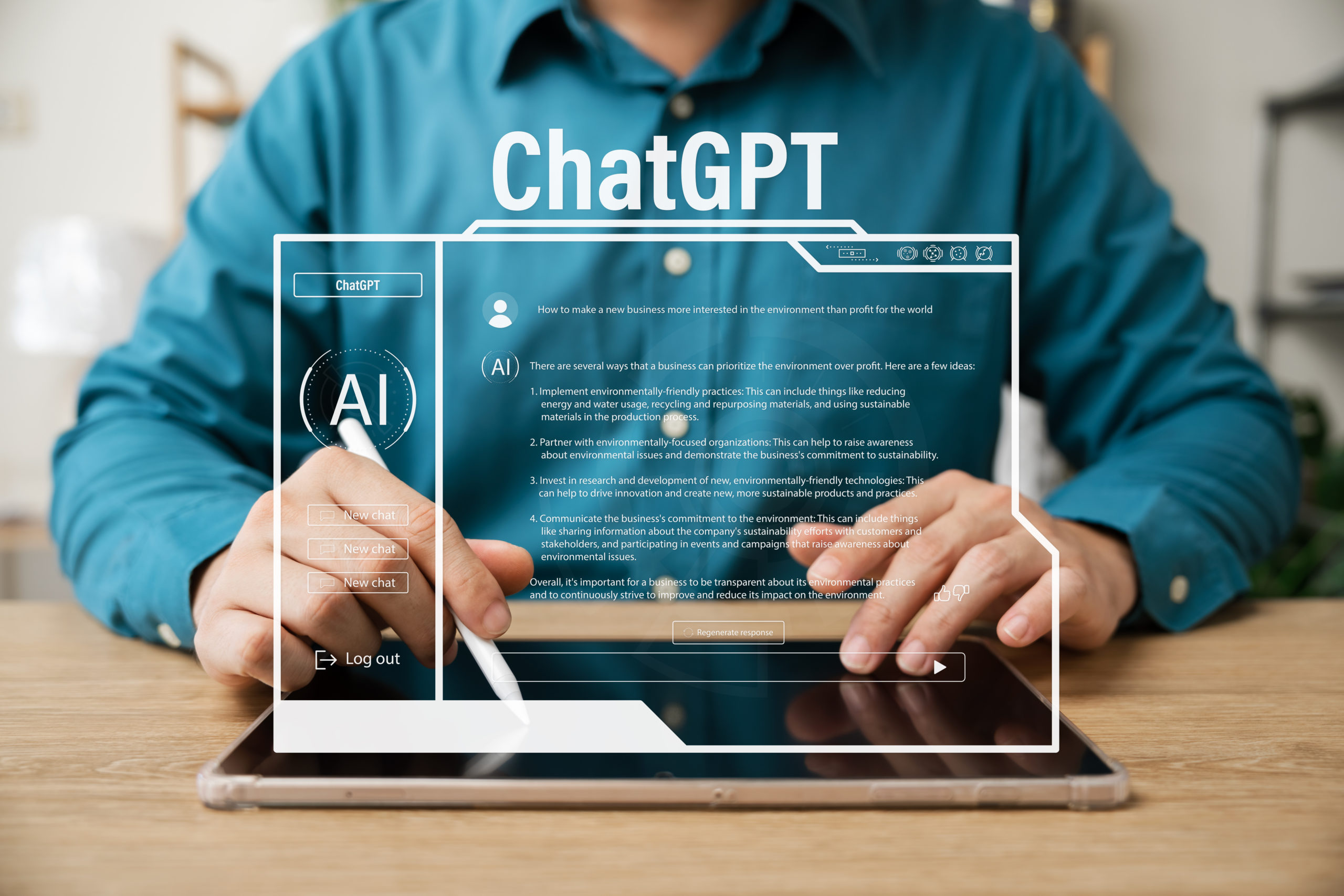
Having covered the applications of ChatGPT in streamlining administrative processes, enhancing citizen engagement, and promoting transparency and accountability, we now turn our focus to its role in improving public services.
This section will explore the potential of ChatGPT in areas like waste management, public safety, and transportation, emphasizing how it can optimize service delivery and streamline workflows for local governments.
ChatGPT’s Role in Elevating Public Services
The primary aim of this section is to delve into how ChatGPT can benefit city and county governments by improving public services. By leveraging ChatGPT, local governments can enjoy the following advantages:
- Enhancing efficiency and responsiveness in service delivery, leading to better outcomes for constituents.
- Streamlining workflows and reducing manual processes, freeing up staff resources for more strategic initiatives.
- Facilitating data-driven decision-making, resulting in more targeted and effective solutions.
Real-World Examples of ChatGPT in Public Services
To illustrate the potential of ChatGPT, let’s examine some real-world examples where local governments have successfully implemented this technology:
- Waste Management: By using ChatGPT to analyze and optimize waste collection routes, a small city was able to reduce fuel consumption and operational costs, ultimately improving the efficiency of waste collection services.
- Public Safety: ChatGPT has been employed in various cities to analyze patterns in crime data, helping law enforcement agencies to allocate resources more effectively and proactively address public safety concerns.
- Transportation: A county government utilized ChatGPT to develop a more comprehensive public transportation plan, taking into account factors like ridership, traffic patterns, and accessibility. This resulted in an improved transit system that better serves the needs of its constituents.
In each of these cases, the implementation of ChatGPT has led to tangible improvements in public services, demonstrating the technology’s potential for enhancing the operations of city and county governments.
Embracing ChatGPT for Better Public Services
By embracing ChatGPT and other AI technologies, local governments can unlock new levels of efficiency and responsiveness in public services. This not only benefits the constituents they serve but also helps build trust and credibility in the eyes of the public.
With careful planning and strategic implementation, ChatGPT can be a transformative force for local governments, fostering innovation and driving positive change.
ChatGPT offers a wide array of benefits for city and county governments, from streamlining administrative processes to enhancing public services. By leveraging this technology, local governments can rise to meet the challenges of today and better serve the needs of their communities.
4. Empowering City and County Admins, managers and clerks with ChatGPT

After discussing the applications of ChatGPT in improving public services and streamlining administrative processes, let’s turn our attention to the critical role of city and county clerks and how ChatGPT can empower them to perform their duties more effectively.
In this section, we will examine how ChatGPT can assist clerks in managing records, handling inquiries, and ensuring compliance with legal and regulatory requirements.
Harnessing ChatGPT to Support City and County managers
The primary purpose of this section is to provide an in-depth look at how ChatGPT can benefit city and county admins, managers, and clerks, enabling them to:
- Efficiently manage and organize records, leading to more accurate and accessible information.
- Handle constituent inquiries more responsively and accurately, improving overall customer service.
- Automate routine tasks, allowing clerks to focus on more strategic initiatives and critical responsibilities.
Real-World Applications of Government offices and managers
To demonstrate the potential of ChatGPT, let’s consider some real-world examples where the technology has successfully supported city and county clerks:
- Records Management: A county clerk’s office used ChatGPT to automate the indexing and organization of records, significantly reducing manual labor and improving the accuracy of the records database.
- Constituent Inquiries: A city clerk employed ChatGPT to develop an AI-powered chatbot that handled routine inquiries, enabling the office to provide more timely and accurate responses while freeing up staff resources for other tasks.
- Compliance Monitoring: A city clerk’s office leveraged ChatGPT to analyze local regulations and requirements, helping them proactively identify potential compliance issues and address them more effectively.
These examples showcase the potential of ChatGPT in supporting city and county clerks, leading to more efficient and effective operations.
Embracing ChatGPT for Enhanced Government Administration
City and county clerks play a crucial role in ensuring the smooth functioning of local government operations. By embracing ChatGPT and other AI technologies, they can unlock new levels of efficiency and effectiveness in their roles, ultimately benefiting their constituents and the communities they serve.
With careful planning and strategic implementation, ChatGPT can be a game-changer for city and county clerks, driving innovation and fostering positive change.
5. Budgeting and Finance with ChatGPT: Unlocking Efficiency and Accuracy in Local Government Finance

Having explored the potential of ChatGPT in various aspects of city and county administration, let’s now examine how it can enhance financial management and budgeting processes for local governments. In this section, we will delve into the ways ChatGPT can help streamline financial operations, improve budgeting accuracy, and enable data-driven decision-making for better fiscal outcomes.
Transforming Financial Management for Local Governments
The primary purpose of this section is to provide an in-depth look at how ChatGPT can benefit local government financial management, allowing them to:
- Automate routine financial tasks, reducing the risk of human error and increasing efficiency.
- Enhance budgeting accuracy and forecasting, leading to better financial planning and resource allocation.
- Leverage data-driven insights for improved fiscal decision-making and long-term financial stability.
Real-World Applications of ChatGPT in Financial Management
To illustrate the potential of ChatGPT in financial management and budgeting, let’s consider some real-world examples where the technology has been successfully implemented in local governments:
- Automating Financial Tasks: A city finance department utilized ChatGPT to automate the generation of financial reports, leading to significant time savings and reducing the risk of human error.
- Budgeting and Forecasting: A county finance office employed ChatGPT to analyze historical financial data and create more accurate budget forecasts, leading to more informed and strategic financial planning.
- Data-Driven Decision-Making: A city government used ChatGPT to identify patterns and trends in financial data, helping them make more informed decisions about resource allocation and spending priorities.
These examples showcase how ChatGPT can revolutionize financial management and budgeting processes for local governments, leading to increased efficiency and accuracy.
Embracing ChatGPT for Optimal Fiscal Outcomes
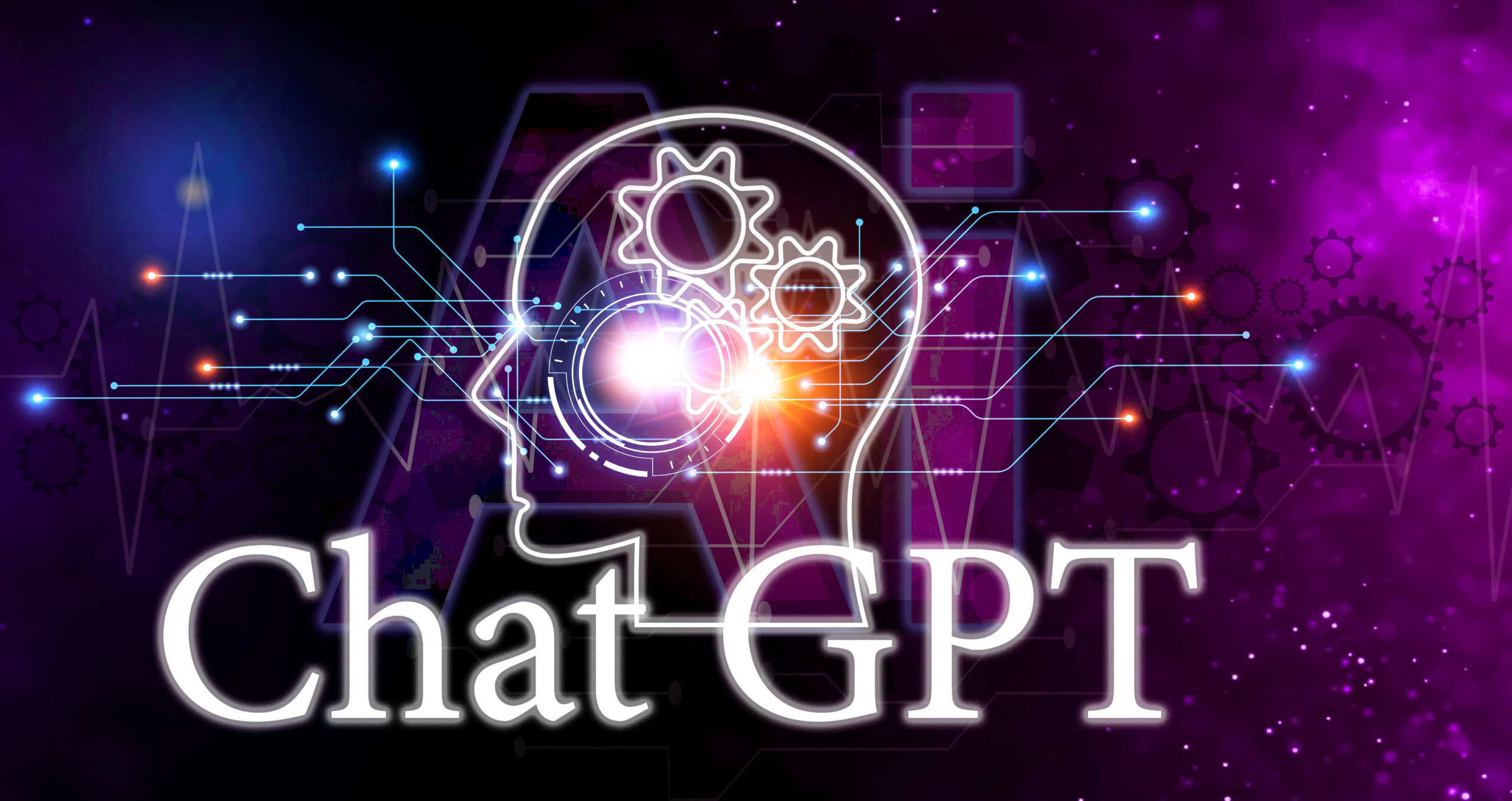
Effective financial management and budgeting are critical components of successful local government operations. By incorporating ChatGPT and other AI technologies into their financial processes, local governments can unlock new levels of efficiency and accuracy, ultimately leading to better fiscal outcomes for their communities.
With strategic implementation, ChatGPT can be a powerful tool for transforming financial management and enabling data-driven decision-making in local government finance.
6. Helping IT Directors Streamline IT Operations and Improve Technical Support
So far, we’ve delved into various applications of ChatGPT for city and county administration. In this section, we’ll focus on how ChatGPT can benefit IT Directors in local government by streamlining IT operations and enhancing technical support services for employees and constituents alike.
Empowering IT Directors in Local Government
The main goal of this section is to provide a comprehensive understanding of how ChatGPT can support IT Directors in city and county governments by:
- Automating routine IT tasks, reducing workloads and improving overall efficiency.
- Enhancing technical support by quickly providing accurate solutions and troubleshooting guidance.
- Facilitating better IT decision-making through data analysis and insights.
Real-World Applications of ChatGPT in IT Operations
To better understand the potential of ChatGPT in IT operations, let’s look at some real-world examples of its successful implementation in local governments:
- Automating IT Tasks: A city IT department leveraged ChatGPT to automate the monitoring of network and server performance, leading to improved efficiency and reduced response times for potential issues.
- Enhancing Technical Support: A county IT help desk used ChatGPT to provide solutions quickly and accurately to common technical issues, improving the overall quality of support for employees and constituents.
- Data-Driven Decision-Making: An IT Director at a local government employed ChatGPT to analyze system performance data, enabling them to make more informed decisions about IT infrastructure and resource allocation.
These examples demonstrate how ChatGPT can be a valuable tool for IT Directors in local government, leading to streamlined operations and enhanced technical support services.
Harnessing the Power of ChatGPT for IT Success
 Effective IT management is crucial for the smooth functioning of local governments, and incorporating ChatGPT into IT operations can help IT Directors unlock new levels of efficiency and service quality. By automating routine tasks, enhancing technical support, and facilitating data-driven decision-making, ChatGPT can be a game-changer for local government IT departments.
Effective IT management is crucial for the smooth functioning of local governments, and incorporating ChatGPT into IT operations can help IT Directors unlock new levels of efficiency and service quality. By automating routine tasks, enhancing technical support, and facilitating data-driven decision-making, ChatGPT can be a game-changer for local government IT departments.
Strategic Planning and Policy-making with ChatGPT: Harnessing AI to Drive Effective Decision-Making in Local Governments
In our exploration of ChatGPT’s applications for city and county governments, we’ve seen how it can be utilized in various sectors, such as public services, administration, and IT operations. In this section, we’ll discuss how ChatGPT can play a pivotal role in strategic planning and policy-making for local governments, providing valuable insights and recommendations to drive effective decision-making.
7. Leveraging ChatGPT for Strategic Planning and Decision-Making in Local Government
The purpose of this section is to delve into the potential of ChatGPT for supporting strategic planning and policy-making in city and county governments by:
- Analyzing complex data sets to generate actionable insights and recommendations.
- Providing comprehensive overviews of different policy options and their potential outcomes.
- Enhancing the efficiency and effectiveness of communication between policymakers and stakeholders.
Real-World Examples of ChatGPT in Strategic Planning and Policy-making
To better understand how ChatGPT can contribute to informed decision-making in local governments, let’s explore some real-world examples of its successful implementation:
- Data Analysis and Insights: A city council employed ChatGPT to analyze various data sources, such as demographic information, economic indicators, and public opinion surveys. The AI-generated insights helped the council make data-driven decisions on infrastructure investments and community programs.
- Policy Option Evaluation: A county government used ChatGPT to conduct a comprehensive analysis of different policy options, taking into account factors like costs, benefits, and potential risks. This allowed decision-makers to make more informed choices and implement policies with the highest potential for positive impact.
- Stakeholder Communication: A local government leveraged ChatGPT to draft clear, concise, and engaging communications materials for stakeholders, ensuring that policy proposals were easily understood and well-received by the community.
These examples showcase how ChatGPT can be a valuable asset for strategic planning and policy-making in local government settings.
Embracing ChatGPT for Smarter Local Government Decision-Making

Incorporating ChatGPT into the strategic planning and policy-making process can lead to more informed decisions and better outcomes for local governments and their constituents.
By leveraging AI-powered insights, evaluating policy options, and enhancing stakeholder communication, local governments can create policies that truly serve the needs of their communities.
The 5 Top Risks and Challenges with ChatGPT and local Government
- Cyber security: Data Breaches and Privacy Issues: Sensitive information, such as citizens’ personal data, might be exposed if ChatGPT is compromised by hackers or inadequate security measures.
- Misinformation and Manipulation: Malicious actors could exploit ChatGPT to spread false information, create confusion, or manipulate public opinion, potentially undermining trust in local governments.
- Bias and Discrimination: If ChatGPT is trained on biased data or inherits unfair biases from its training data, it might make decisions or provide information that perpetuates discrimination, leading to unequal treatment of citizens.
- Over-reliance on AI: Excessive dependence on ChatGPT could lead to devaluing human expertise and judgment in important decision-making processes, potentially resulting in suboptimal or harmful outcomes.
- Legal and Ethical Challenges: The use of AI like ChatGPT may raise concerns related to transparency, accountability, and responsibility when errors or unintended consequences occur in public service delivery or decision-making.
Cybersecurity The biggest risk for local governments
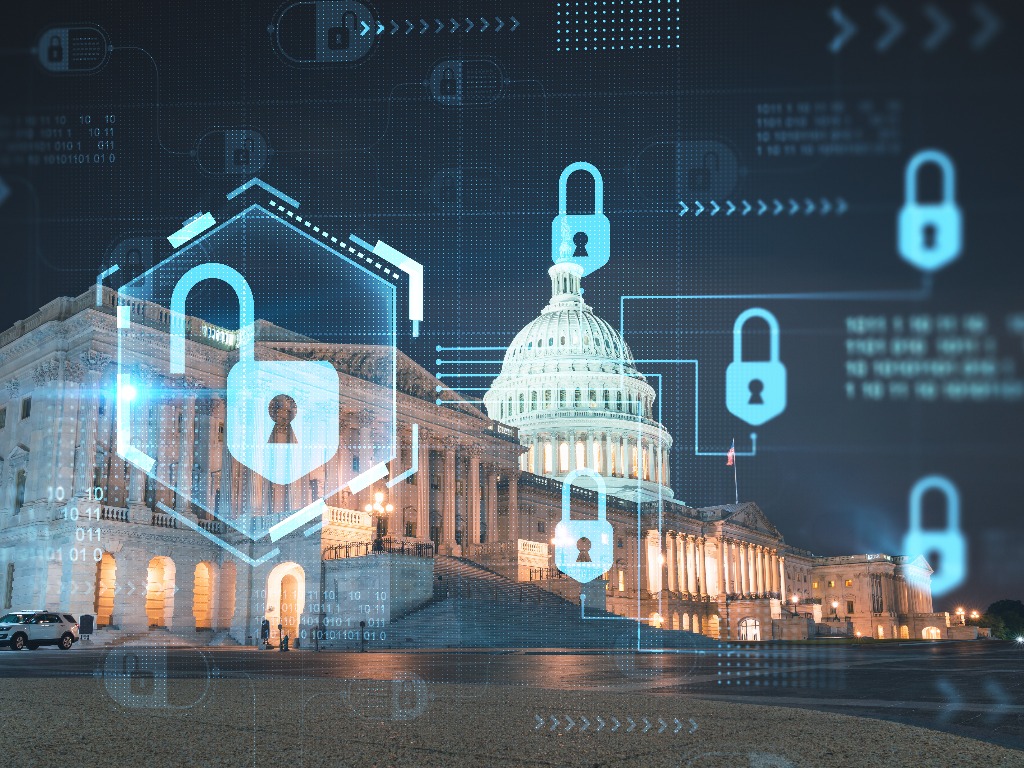
While ChatGPT offers many advantages for city and county governments, it’s essential to address the cybersecurity concerns that come with implementing any new technology. Ensuring the safety and privacy of sensitive information is a top priority for local government entities.
The adoption of ChatGPT by cities and governments presents several cybersecurity concerns that need to be addressed to ensure the technology’s secure and responsible use. Unauthorized access or hacking attempts could lead to significant consequences, damaging public trust and putting citizens at risk.
In addition to these concerns, the use of ChatGPT also raises the possibility of unauthorized access, insider threats, and AI-powered attacks. Cybercriminals might target vulnerabilities in ChatGPT to infiltrate government systems, impersonate officials, or launch sophisticated attacks on infrastructure or communication channels.
Potential Risks and Challenges
- Data Privacy: ChatGPT relies on large datasets to generate responses, which may include sensitive information. It’s crucial to protect this data from unauthorized access and ensure that the AI does not inadvertently disclose confidential information.
- Misinformation: ChatGPT, like any AI technology, may produce inaccurate or misleading information. Implementing monitoring and validation processes can help mitigate this risk and maintain the accuracy of the information provided to the public.
- Malicious Use: Cybercriminals might attempt to exploit ChatGPT for nefarious purposes, such as impersonating officials or spreading disinformation. Local governments should be vigilant in detecting and responding to such threats.
Best Practices for Cybersecurity
- Regular Security Assessments: Conducting routine security assessments will help identify potential vulnerabilities and implement necessary measures to protect ChatGPT and the associated data.
- Access Control: Implement strict access controls to ensure that only authorized personnel can interact with ChatGPT, thereby reducing the risk of unauthorized access or misuse.
- Encryption: Encrypting sensitive data both in transit and at rest will help safeguard it from potential breaches.
- Employee Training: Educating employees about cybersecurity best practices and how to recognize potential threats is crucial to maintain a strong security posture.
- Collaborate with IT Directors: Engaging with IT directors to develop and implement robust cybersecurity policies and procedures will help create a secure environment for deploying ChatGPT in local government settings.
While ChatGPT has the potential to transform city and county governments’ operations, it is vital to address the associated cybersecurity concerns. By implementing best practices and diligently safeguarding sensitive information, local governments can effectively leverage ChatGPT while maintaining a secure environment.
Embracing the Future
As we’ve explored throughout this article, ChatGPT has the potential to revolutionize various aspects of city and county government operations.
From streamlining administrative processes and improving public services to empowering city and county clerks and enhancing financial management, ChatGPT offers numerous benefits that can result in increased efficiency, accuracy, and cost savings.
Adopting cutting-edge technologies like ChatGPT is vital for local governments to stay competitive and meet the evolving needs of their constituents.
By embracing these advancements, city and county officials can ensure they’re utilizing the best tools available for strategic planning and policy-making, as well as providing optimal support for IT directors.

